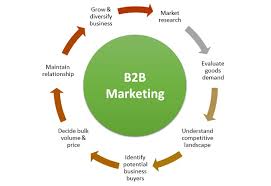In B2B (Business-to-Business) marketing, the approach to reaching potential clients vastly differs from that of consumer marketing. The strategies and tools used in B2B are tailored to target business clients, build long-term relationships, and drive high-value conversions. This article will explore the essential techniques, trends, and practices shaping B2B marketing today.
Understanding B2B Marketing
B2B marketing refers to strategies and tactics aimed at businesses rather than individual consumers. Unlike B2C (Business-to-Consumer) marketing, which focuses on emotions and quick decisions, B2B marketing emphasizes data-driven decision-making, value propositions, and building trust over time.
Key Differences Between B2B and B2C Marketing
The decision-making process in B2B marketing is longer and more complex than in B2C marketing. Business clients often involve multiple stakeholders, requiring detailed information and thorough analysis before purchasing. Additionally, B2B buyers are looking for long-term solutions, meaning building a lasting relationship with the client is critical to success.
B2B Marketing Strategies
An effective B2B marketing strategy requires a deep understanding of the target audience and the right mix of content, digital tools, and lead-generation tactics. Let’s explore some of the most impactful strategies in the B2B landscape today.
Content Marketing in B2B
Content is a powerful tool in B2B marketing, helping businesses attract, engage, and convert their target audience. Thought leadership articles, white papers, case studies, and webinars are common forms of content that demonstrate expertise and provide valuable insights to business clients.
Account-Based Marketing (ABM)
Account-based marketing (ABM) is a highly targeted B2B strategy in which businesses focus their marketing efforts on a specific set of high-value accounts. ABM personalizes marketing messages and campaigns to address the unique needs of these accounts, increasing the chances of conversion and fostering deeper relationships with key clients.
The article continues, following the outline with detailed sections on digital marketing, lead generation, sales funnels, and emerging trends in B2B marketing.
FAQs About B2B Marketing
What is B2B Marketing, and How Does it Differ from B2C?
B2B marketing targets businesses, focusing on long-term relationships and data-driven decisions, while B2C marketing targets individual consumers and often relies on emotional appeals and shorter sales cycles.
What Are the Most Effective B2B Marketing Strategies?
The most effective B2B marketing strategies include content marketing, account-based marketing (ABM), email marketing, and leveraging digital tools like SEO, PPC, and social media to reach business clients.
How Can I Improve My B2B Lead Generation Efforts?
To improve lead generation, businesses can focus on creating high-quality content, optimizing their website for search engines, using email marketing automation, and leveraging account-based marketing (ABM) for personalized outreach.
What is Account-Based Marketing (ABM), and How Can It Help My Business?
ABM focuses on creating tailored marketing campaigns for high-value business accounts, fostering personalized relationships that increase conversion rates and customer loyalty.
What Metrics Should I Track in My B2B Campaigns?
Key metrics to track include return on investment (ROI), conversion rates, customer acquisition cost (CAC), and customer lifetime value (CLV), which help measure the effectiveness of your marketing efforts.
What Are the Latest Trends in B2B Marketing?
Current trends in B2B marketing include:
- The increasing use of AI and automation.
- The rise of data-driven marketing.
- A focus on creating personalized, value-driven content for business clients.
Conclusion
B2B marketing is evolving with new technologies, trends, and strategies that are helping businesses build stronger, more impactful relationships with their clients. By leveraging digital tools, content marketing, and personalized approaches like ABM, companies can effectively engage and convert their target audience, ensuring long-term success.




